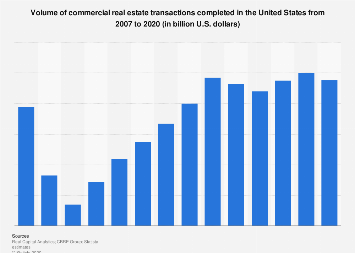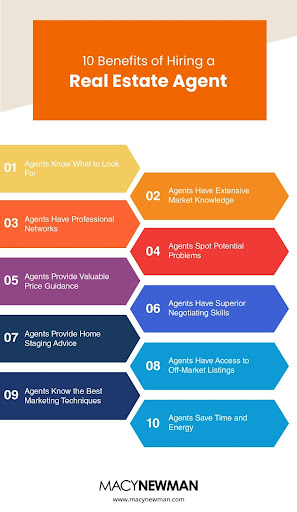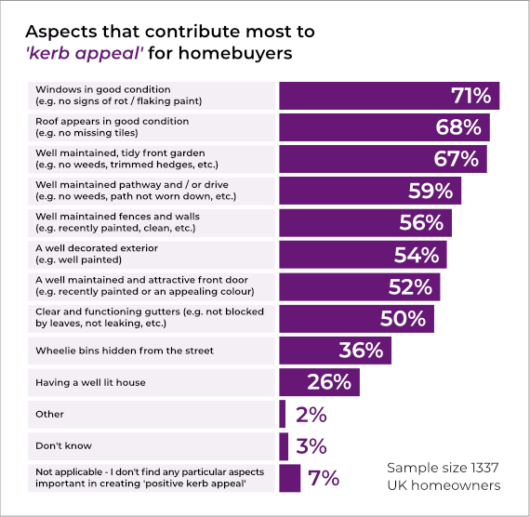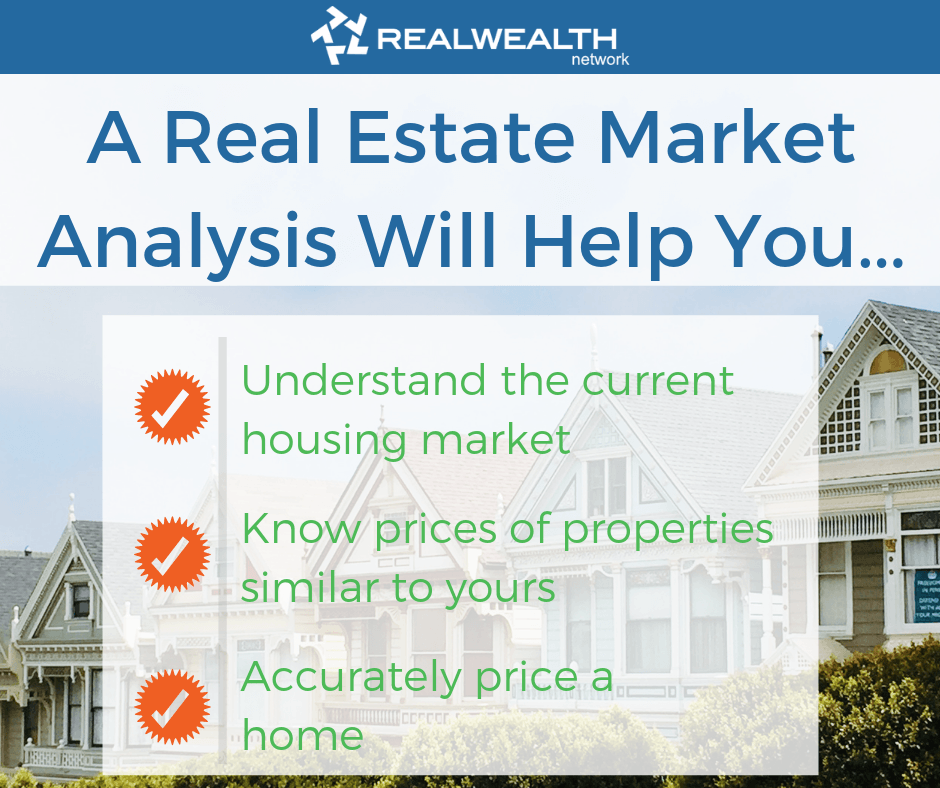How to Sell Your Commercial Building Faster and at a Higher Price
In recent years, the volume of commercial properties has increased in the United States. Deal volumes increased sharply over the first quarter, especially when compared with the first quarter last year. It was primarily due to strong investor interest in commercial properties.

(Sources: Statistica)
However, despite this modest comeback, selling commercial real estate won’t be easy for owners.
The process of selling an industrial or commercial property involves much more than simply making a sign and taking some photos.
Knowing your potential buyers, creating a clear price strategy, and marketing the property can be challenging tasks. To make sure your listed property sells quickly, we are going to point out these tips:
1. Increasing the Rental Rate
Increasing rent before a sale is one of the quickest, easiest ways to improve your property’s value.
For example, maybe some tenants in the building whose initial one-year lease is coming to an end. You can increase the rent to market rent, and most likely no one will leave. You could add 2-3 months free rent, to sweeten the deal – which allows for a higher base rate for you and the new buyer and allows the tenant to adjust to the new rate. The tenant most likely will not move as they will have moving costs and any new building they hope to lease will be asking market rates as well. It always makes sense to keep your rents at market levels, but especially when selling.
Consider looking at your lease roll and seeing if there are any revolving leases. If so, inform the tenant that her rent will increase. If you’re selling or refinancing, every dollar of extra rent generates more cash.
2. Find a Commercial Real Estate Agent with Experience
Interviewing a real estate agent with experience is necessary. For example, suppose you are interested in selling a specific type of property in a particular area. In that case, I recommend speaking with two or three real estate agents who are experienced in the asset type in question.
Make sure you don’t interview brokers selling Chicago houses or condos if you want to sell an office building in Chicago. Each agent has their own set of skills. It would be best to deal with a real estate expert who understands the types of properties in the market in which you live.
If you find the right agent, how do you know? First, you may want to ask what they’ve sold and what they are currently selling. Then, look into their company, ask for references, and if you want, get in touch with their statewide real estate board to ensure their license is valid.

(Source: Macy Newman)
Ensure that the commission structure they desire is competitive by finding out what their marketing plan will be. As the last step, ask their opinion about any last-minute renovations they suggest. When it comes to pre-sale preparation work on the building, the real estate agent marketing the property should have the best knowledge. A real estate agent can suggest any necessary fixes to help get the most out of the eventual sale of your property.
3. Remodel Your Commercial Property
Your commercial property’s exterior will be the first thing a potential buyer sees regardless of how excellent the interior looks in the pictures you have listed. Therefore, make your commercial property more appealing from the curb if it is not already a new construction building.
A new coat of paint might be all you need. Consider popular paint colors that will attract the kinds of business you want to attract to your property. In addition, you can make minor repairs around the outside and inside the property. For example, inspect, repair, and maintain your property’s windows, doors, lighting, and common areas.

(Source: Hoa)
Adding landscaping to your commercial property is another excellent way to enhance its appearance. It is vital to ensure the interior of a commercial property is clean before you market it since empty properties don’t always sell better.
4. Compare Other Property Values to Yours
It is imperative you know how your property compares with other similar commercial real estate in your area before you begin to list it on the market. By doing this, you will know how much your property is worth. In addition, get familiar with the pricing trends of the neighborhood in which your property is located before you list your property. It will ensure your property will sell quickly at its asking price if listed at market price.
The best way to begin is by finding comparable properties near your own.
Check the distance from your property, the sale price per foot, and the date when the comparable properties sold to make sure it is usable comparable sale. Unfortunately, some commercial databases cannot be accessed by the general public, these services are only accessible to commercial brokers that pay dearly for them.
Find out who your competition is. If you have found a property for sale close to you, take a look and see what it offers. Consider the rental rate, amenities, and location carefully. It will give you a good idea of how you stack up against the competition. Investors will also pay attention to the ability of the building to generate income, along with the comps.

(Source: Real Wealth Network)
CAP rate (or Capitalization Rate) refers to the rate of return calculated by comparing the amount invested to the annual income generated by the property. In the case of a $1,000,000 home purchase that earns $100,000 per year, the CAP rate is 10% – a very healthy return in this market, to be sure! If you are developing a pricing strategy for your building, consider what CAP rate it will yield.
5. Be Realistic in Your Demand and Your Pricing
Before you put your property on the market, a seller always wants to enhance the property’s value. You should, however, be realistic in setting the sale price, as this will be one of the most determining factors when a buyer views the property on the market. If you take the steps described above, you may be able to increase the building’s value slightly before you sell, even if it doesn’t reach the value you hoped.
It might also be tempting to sell your property as-is and reap the benefits of the capital infusion. Still, if you increase its value by thousands or even millions of dollars, it’s worth your time to make the necessary adjustments. But, as soon as you do, don’t let yourself wait in vain for a magic number to appear.
If you own a commercial property, you need to ensure your asking price is what the market will bear. When selling a commercial real estate property, asking too much or too little can be detrimental. It isn’t always that asking too little will result in you losing money on your property; it is more likely that asking too much will result in your property remaining unsold for months or years at a time.
6. Prepare Your Documents Before You List Your Property
Obtaining all the necessary information and documents about your property is a prerequisite to listing your property on the market. For example, there are title documents, lease agreements, zoning regulations, ADA compliance documentation, permits, surveys, tax certificates, and financial information that all need to be organized. In addition, sellers should ensure that all data related to their legal entities are securely stored in a VDR (Virtual Data Room).
Commercial property owners typically allow their attorneys to handle the paperwork, but sellers must familiarize themselves with commercial real estate transactions. Therefore, organize and keep current all the information regarding your commercial real estate property.
7. Understand the Transaction Process on Both Side, Be Aware of the Process
It is essential to educate yourself on the buyer side of the commercial real estate transaction, even though you are the seller. Because for a transaction to succeed, both parties must agree on all terms. When you know what the other party’s priorities are, you have a better chance of making your property more appealing to them.
8. Choose the Right Places to Market Your Property
The advantage of using online real estate listings over traditional methods is that you can ensure properties are viewed by the most people possible. A proliferation of commercial real estate listing resources has accompanied their popularity, making finding the right listing platform more difficult for sellers.
If you are a seller or a commercial real estate agent, you should make sure the listing you use reaches the maximum number of potential buyers. It may seem challenging to decide which CRE listing platform is right for you, but there are a few ways to find out. In other words, as a seller, you must target not just on-market buyers but also off-market buyers.
Top platforms for commercial real estate listings such as Total Commercial, LoopNet, Commercial MLSs like MNCAR, Crexi, and CityFeet can help you get your property in front of the most potential buyers. However, a commercial real estate agent is generally required to represent the seller in many of these markets.
9. Gain a Better Understanding of Investors’ Viewpoints
To start with, make sure the information on your listing is accurate and up-to-date. You can negotiate a more robust contract if you are confident in your report.
Knowing your investors’ preferences can help you attract them. For example, do they need a turnkey property with a 100% leased tenant mix, or do they want to improve the property and the tenant mix? It would be best if you analyzed your tenant mix before speaking with investors so that you know where you stand.
The best way to sell your location is to highlight its attributes. For example, make sure you note the cross streets near your property, the proximity to highways and public transportation, and how much traffic is generated on your property. Likewise, demographics are helpful information for potential investors, with household income, population, and age ranking among the top statistics they consider.
10. Hire a Professional Photographer
Smartphones make it incredibly easy to take great pictures, but regardless of how good of a camera your smartphone includes, a professional photographer will help ensure your property captures the attention of a broader audience.
In addition, commercial real estate is influenced mainly by images, so you need to ensure the images you use on your listing represent your property well
With online property listings, photos are a key component next to the numbers of the property on how well a property will sell.
Buyers generally prefer video and pictures accompanying residential and commercial listings. In this way, they can get a more actual picture.
A potential buyer will better understand the type of property they are buying if they can picture themselves in the property. To ensure that your commercial properties receive the attention they deserve, make sure you include high-quality photos, videos, and even floor plans and site plans.

(Source: Placester)
11. Find Out How Much Your Commercial Property is Worth by Getting Your Commercial Property Appraised
In comparison with residential real estate, the appraisal process for commercial properties is more complex. In the typical appraisal, the appraiser will conduct a preliminary inspection. Besides public ownership, zoning records, and other available data, appraisers will also examine other factors contributing to property values. Most important for valuing commercial real estate will be the net income of the property and the recent comparable sales in the area of similar properties to this one.
As part of supplying all info required to an appraiser, you also need to learn about the appraisal process to ensure you can sell the property. If you’re a seller, you might want to consider this approach before any other one.
Using this method, you will get a more realistic idea of the value of the market today.
12. Be Patient
To sell commercial property, you need patience. The process of selling commercial property—and property in general—can be lengthy and require a lot of documentation and legwork. As a result, you may have to wait a couple of months for your commercial property to sell, or it may take more than a year.
However, obtaining the right price and marketing your property to the right audience should make it easy to sell. You can also turn to a commercial real estate agent if you don’t have the time or know-how to sell your commercial property yourself. They can list your property correctly in the proper channels on your behalf.
Would you like to sell your commercial property?
A commercial real estate sale timeline can only be taken advantage of with help from a trusted real estate consultancy.
We here at Commercial Consult are dedicated to helping you sell your commercial property. We have completed over a thousand commercial transactions so you can rest assured that your real estate deal will be exactly what you desire. We look forward to hearing from you!






 3100
Bristol
St., Suite 150,
3100
Bristol
St., Suite 150, info@commercialconsult.com
info@commercialconsult.com